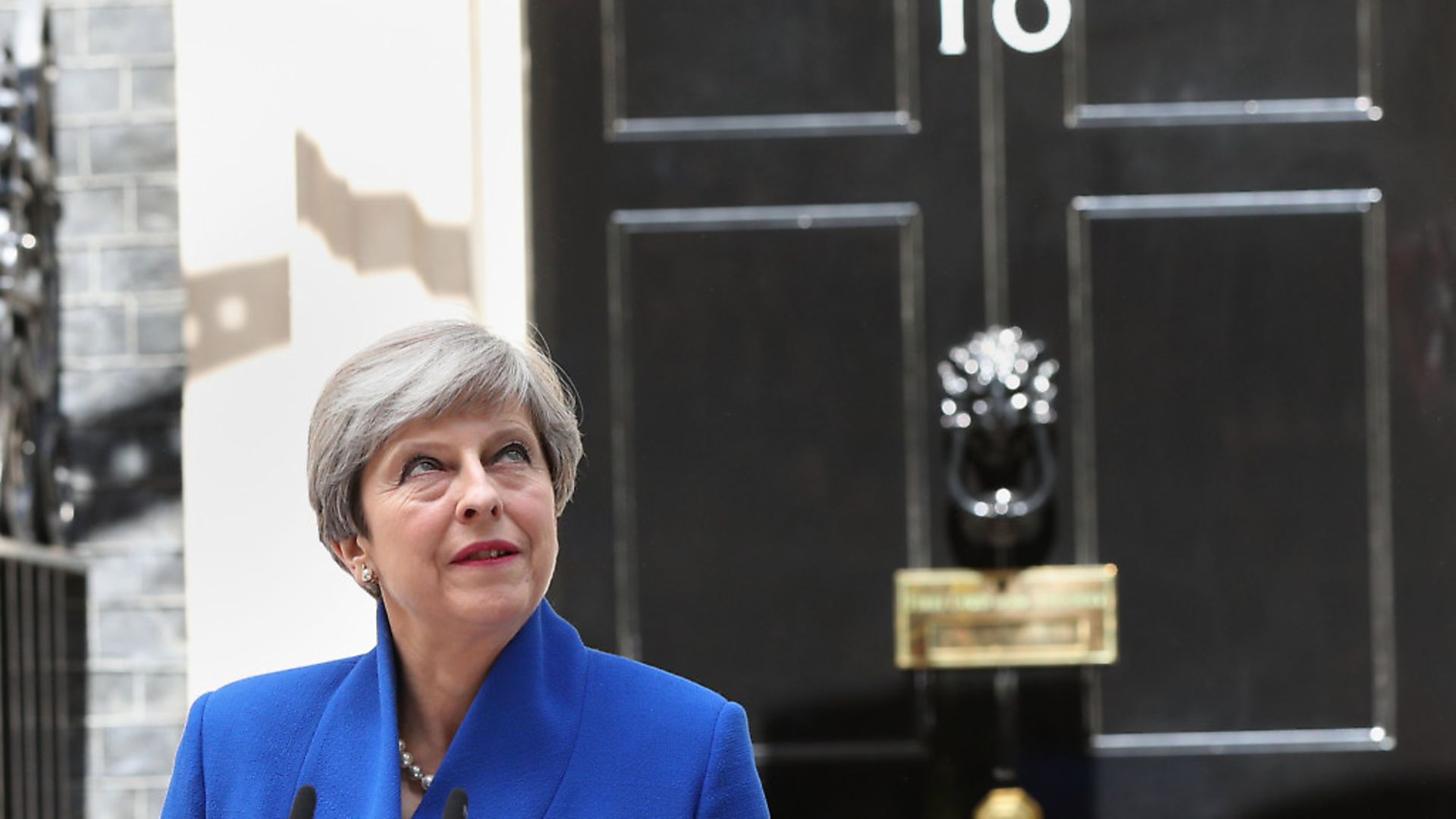Not for the first time since leaving office, Theresa May is making the Tory whips perspire as the publication next month of her book The Abuse of Power draws close.
“She’s described it very loosely as being about how trust in politicians and public institutions has been eroded, but steadfastly refuses to give more information than that even to her own whips,” says my man in Westminster.
“The government’s hardly in the strongest position right now, and, with the book out just before the party conference, the prospect of a further eruption from Mount Theresa is the last thing her party needs.”
The book will look at the Hillsborough and Grenfell tragedies, the Daniel Morgan police corruption case, and, most worryingly of all so far as her party managers are concerned, the Salisbury poisonings, which gets into the whole issue of Russian interference with our politics and potentially the roubles her party has taken and Boris Johnson’s relationship with Lord Lebedev.
May has not held back in terms of criticising Johnson, Liz Truss and Rishi Sunak – most recently when she spoke out in the Commons against his Illegal Migrants Bill – and all three can reasonably be accused of abusing their power in various ways while in office.
May has already made more than £2m from her speaking engagements since leaving office, but her motivation for writing The Abuse of Power is not money, and, tellingly perhaps, she chose in Headline a publisher not within the Rupert Murdoch stable and with a reputation for holding the powerful to account.
She has just declared two advance payments of £20,500 from Headline – what Johnson would regard as chicken feed so far as a book or newspaper deal was concerned – and is now working on an extensive series of promotional interviews and appearances.
It would be nice to say that the public gets to choose who sits in the House of Commons, but, as the journalist Michael Crick knows only too well, it’s the local party associations that really get to decide when they select the candidates that go on the ballot papers.
With the days of David Cameron’s A-list long gone – when the Tories imposed preferred candidates on associations, partly in an attempt to increase diversity – Crick says their local associations are now going very much for local and predominantly white and male candidates.
Of the 25 currently held Tory seats where candidates have been selected since the start of June (excluding four seats where members chose a sitting MP from elsewhere and excluding, too, the Selby and Ainsty by-election) the Tories have chosen 22 men and three women – that’s a 12% decrease on the previous position. In six of those 25 seats, Tory members have chosen someone from an ethnic minority background, that’s an alarming 24% down, and few, if any, of the seats where ethnic minority candidates have been chosen are considered winnable.
“The Tories have been selecting lots of young men with backgrounds in local government,” he tells me. “Lots of ambitious young females are furious.”
His @tomorrowsmps handle on the site formerly known as Twitter updates the selection processes for all the parties in real time, and, with Crick saying there isn’t a huge discrepancy in the make-up of Labour’s candidates, as things stand, expect the Commons to be populated predominantly by men after the next election.
In the latest sex scandal to rock the media industry, Peter Wilby, former editor of the New Statesman, was given a ten-month prison sentence suspended for two years after he was convicted of viewing images of child sexual abuse. The magazine stated: “The New Statesman staff and management had no knowledge of Wilby’s arrest or charges before they were reported yesterday, and are shocked and appalled to learn of these horrifying crimes. Wilby, 78, was New Statesman editor from 1998 to 2005, and remained a contributor.”
When Wilby vacated the editorial chair, it was not clear if he jumped from it or was pushed. Then the magazine simply said: “Peter Wilby has resigned as New Statesman editor after seven years in the chair.”
Says my source: “There were no tributes paid publicly to Wilby by the magazine when he left it after seven years. His most recent article for it was published as recently as November last year and he wrote a lot for the magazine between 2013 and 2022, when he was found to have had on his computer more than 100 images of children being sexually abused. Their statement notwithstanding, it still seems legitimate to ask ‘who knew what at the New Statesman and when did they know it?’”
About the only purpose in inviting Liz Truss to speak at public events is to have a few laughs at her expense, and so it was when News Xchange showcased her at their conference in Dublin earlier this summer. The nation’s shortest-serving prime minister was asked questions about how the Daily Star had presciently live-streamed images of a lettuce in a blonde wig that they correctly predicted would outlast her period in Downing Street. “I don’t think it’s funny, I just think it’s puerile,” Truss had told invitees, to much laughter.
For putting herself in the stocks, Truss has just disclosed she picked up a mere £32,000 from News Agenda Ltd, plus what sounds like bog-standard accommodation for herself, her husband and a staff member that cost just £720, and flights valued at £2,377.
Mandrake has already related how Martin Ivens, as editor of the Sunday Times in 2016, assured his senior executives that the paper would be on the side of common sense in the EU referendum and come out against Brexit. Then something happened – either a kick in the head from a horse or a call from his owner Rupert Murdoch – and Ivens informed the same bemused executives that the paper would in fact be backing Brexit.
That was scarcely the newspaper’s finest hour, but David Smith, in his Economic Outlook column in the paper over the weekend, chose not to mention he worked for a pro-Brexit title when he described the decision to leave the EU as “daft.” His long, depressing review of what has happened since related how 60% of the population now believe leaving was a mistake, imports and exports are down 15% – significantly exacerbating the cost of living crisis for the poorest and most vulnerable – and a 5% hit to the overall economy last year as a consequence of Brexit. Smith, added, for good measure, that Brexit has had a disastrous effect on politics, trust in politicians and competence in government.
“If we could travel back to 2016, it would help, but that is impossible,” Smith dolefully concluded. That time-travelling would no doubt have involved Smith walling his then-editor up in his office so he could do no harm.
Ivens, who turns 65 next week, left the Sunday Times in 2020, but currently enjoys lucrative sinecures as editor of the Times Literary Supplement and sits on the board of Times Newspapers. As well he might, Murdoch thanked Ivens when he left the Sunday Times for his “great service.”




